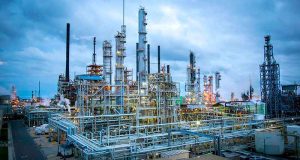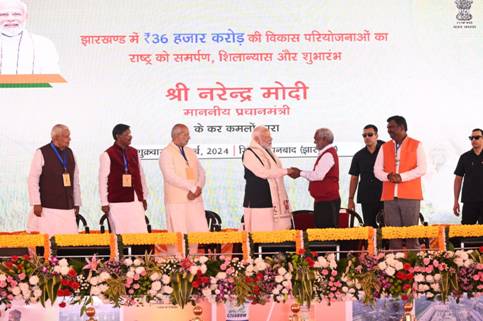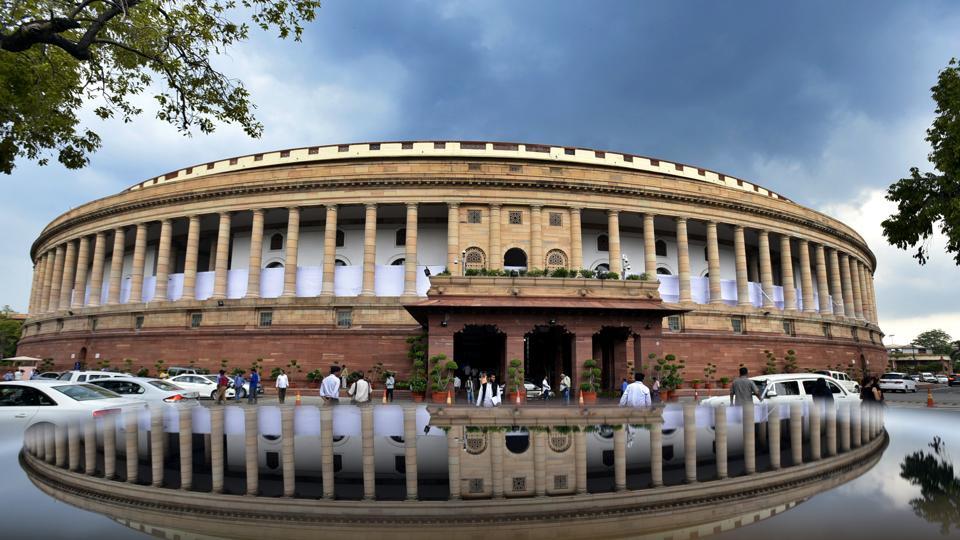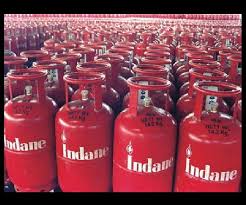Department Of Pharmaceuticals:
Various activities undertaken by DoP in the wake of outbreak of COVID-19:
In the wake of outbreak of COVID-19, Department of Pharmaceuticals has taken the following measures in the interest of the public health:
- Department of Pharmaceuticals (DoP) held a series of meetings on 31st January, 2nd, 3rd and 6th February with all relevant stakeholders to assess the domestic availability of (i) Drug Lopinavir+Ritonavir fixed drug combination which was included in the initial protocol of ICMR for treating the COVID-19 disease (ii) Gloves (Nitrile as well as Latex) and (iii) Active Pharmaceutical Ingredients (API), intermediates and Key Starting Materials (KSM) for which India is critically dependent on imports from a single country.
- DoP issued necessary instructions to National Pharmaceutical Pricing Authority (NPPA), Drugs Controller General of India (DCGI) and State Governments to ensure adequate supply of APIs and formulations at affordable prices in the market and to prevent black-marketing, illegal hoarding, creating artificial shortages in the country.
- The Department recommended DGFT to restrict exports of 13 identified APIs and formulations made using these APIs. (On 03.03.2020, DGFT notified restriction on exports of 13 APIs and their corresponding formulations as a measure against the implications of COVID-19 outbreak in China.
- DoP helped Ministry of External Affairs and Ministry of Health and Family Welfare to procure various supplies needed for China and India.
- Two Control Rooms were set up, one in the Department of Pharmaceuticals and the second in the NPPA. The Control Room in DoP (with Phone No. 011-23389840 and email: helpdesk-pharma@gov.in) was set up on 28.03.2020 for handling transport and logistics services related issues of the pharmaceutical industry and essential services following the lockdown across the country.
- Supply of HCQ and paracetamol :During this period, GoI constituted an Inter-ministerial Empowered Committee to make recommendation for the export of drugs/ items requested by foreign governments especially drugs like Hydroxychloroquine and Paracetamol. Using a reporting framework for production and supply of these medicines coordinated by NPPA, the Empowered Committee made recommendation for release of surplus drugs produced to foreign countries after ensuring the sufficient domestic availability. Based on recommendations of Empowered Committee, DoP/NPPA issued recommendation/orders which enabled the MEA/DGFT to fulfill various export commitments towards 114 Countries in respect of HCQ and 24 Countries in respect of Paracetamol, including SAARC Nations. This exercise was undertaken on humanitarian grounds.
- Enhanced Production Capacity – On the intervention of Empowered Committee, during March-May 2020 the numbers of manufacturing units of Hydroxychloroquine increased from 2 to 12 and the country’s production capacity of Hydroxychloroquine increased three times i.e. from 10 Crore (Approx) tablets per month to 30 Crore (Approx) tablets per month. Currently, India is having surplus of Hydroxychloroquine tablets over and above its domestic requirements.
Role of Jan AushadhiKendras during COVID 19 crisis
-
- In the wake of COVID 19 crisis, Pradhan MantriBhartiyaJanaushadhiPariyojana (PMBJP) has been rendering essential services to the nation. The stores are functional and maintaining operations as part of their commitment to ensure uninterrupted availability of essential medicines at the PMBJK. BPPI has clocked appreciable sales turnover of Rs. 52 Crore despite the lock down and testing times in the month of April 2020 as compared to Rs. 42 Crore achieved in March 2020.
Role of NPPA during COVID-19
During the COVID-19 pandemic in the country, NPPA played an active role in addressing the exigencies arising out of COVID-19 pandemic and undertook necessary measures to ensure continued availability of life saving essential medicines throughout the country.
-
- Pricing Of Drugs:-In times of the pandemic, the NPPA invoked extraordinary powers in public interest to ensure that pricing issues do not impede the access to life saving drugs like Heparin and Medical Oxygen.
- HEPARIN: Heparin is used as blood thinner and Heparin Injection 5000IU/ ml has been considered as an essential COVID plus medicine and widely used for COVID-19 treatment. NPPA received representations from several manufacturers mentioning that there is an upward increase in prices of API of this drug. NPPA got the issue examined through Export-Import Monitoring Committee that reported 200% increase in landing cost of Heparin API and on its recommendation; NPPA revised the ceiling price of Heparin upward for a period of six month to ensure its continued availability during the pandemic.
- Medical Oxygen: The situation of COVID-19 resulted in increased demand of Medical Oxygen (MO) in the country. Due to excess demand, delivery through cylinders had increased from 11% pre-COVID to 50% of current oxygen supply. It was therefore, imperative to cap price of LMO to ensure uninterrupted availability of Medical Oxygen though cylinders to the hospitals and consumers.
- N95 Mask: In order to ensure availability of N95 mask at affordable prices in the Country, NPPA, directed Manufacturers/ Importers/ Suppliers of N95 After issuing such an Advisory, major manufacturers/ importers of N-95 Masks have reduced their prices significantly up to 67%.
- Pricing Of Drugs:-In times of the pandemic, the NPPA invoked extraordinary powers in public interest to ensure that pricing issues do not impede the access to life saving drugs like Heparin and Medical Oxygen.
- Availability of Essential Drugs- NPPA has taken a number of steps to ensure the availability of medicines throughout the country, during lockdown and Unlock phases. Such steps taken by NPPA are mentioned below:.
- COVID-19 Treatment Protocol Drug Availability: NPPA undertook various steps to ensure the availability of life saving essential drugs like Hydroxychloroquine, Paracetamol, Methylprednisolone, Enoxaparin, Dexamethasone, Remdesivir etc. NPPA also ensured the availability of Vaccines, Anti-Tuberculosis drugs, Anti-diabetic drugs, Cardiac drugs, imported Anti- epileptic drugs and drugs like FDC Lopinovir& Ritonavir, Favipiravir, Zinc Sulphate, etc.
- COVID and COVID plus Drugs Database: NPPA in coordination with CDSCO developed a comprehensive database for COVID & COVID plus (55+97) drugs as a measure of preventive preparedness for fighting COVID-19.
- Black Marketing: NPPA took cognizance of reports of black marketing of Remdesevir and Tocilizumab and directed DCGI to issue necessary instruction to SDCs to take appropriate action in this respect including instructing the manufacturers to display on their website the hospitals where the drugs are being supplied and also operationalizing their helpline number.
Production Linked Incentive (PLI) scheme for promotion of domestic manufacturing of critical Key Starting Materials (KSMs), Drug Intermediates (DIs) and Active Pharmaceutical Ingredients (APIs) in India:
Production Linked Incentive(PLI) Scheme for Bulk Drugs and PLI Scheme for Medical Devices have shown a very encouraging response from the pharmaceutical as well as the medical device industry. The PLI Scheme for Bulk Drugs has received 247 registrations across all four categories of products out of which a maximum of 136 applicants will be selected under the Scheme. Similarly, the PLI Scheme for Medical Devices has received 28 registrations across all four target segments out of which a maximum of 28 applicants will be selected under the Scheme. IFCI Ltd. is the Project Management Agency for the schemes and all the applications are being received on its online portal. The appraisal and selection process of applicants is underway and will be completed by end of February, 2021.
The objective of Production Linked Incentive (PLI) scheme for promotion of domestic manufacturing of critical Key Starting Materials (KSMs)/ drug intermediates and Active Pharmaceutical Ingredients (APIs) in India is to promote domestic manufacturing of 41 identified bulk drugs to address their high import dependence. The total outlay of the scheme is Rs 6,940 crore. The scheme duration is from 2020-21 to 2029-30. Under the scheme, financial incentive will be given for six years to eligible manufacturers of 41 bulk drugs on their incremental sales over the base year. For fermentation based eligible products, rate of incentive for the first four years (2023-2024 to 2026-2027) would be 20%, for fifth year (2027-28) would be 15% and for sixth year (2028-2029) would be 5%. For chemically synthesized eligible products, rate of incentive for entire six years (2022-2023 to 2027-2028) would be 10% With the successful implementation of this Scheme it is expected that India would be well positioned as a global hub for manufacturing of identified bulk drugs along with the final drug formulations.
Scheme for Promotion of Medical Device Parks:
The medical devices manufacturing sector faces lack of a level playing field vis-à-vis competing economies. The sector suffers from a disability of around 12% to 15% on account of various factors. To address this disability , the department prepared two schemes for medical devices: scheme for promotion of medical device parks and PLI scheme for promoting domestic manufacturing of medical devices. The Union Cabinet approved these two schemes on 20.03.2020.
The total size of the Scheme for promotion of Medical Device Parks is Rs. 400 Crore and tenure of the Scheme is five years (2020-21 to 2024-25). The scheme will provide grant-in-aid to 4 Medical Device Parks with a maximum limit of Rs. 100 Crore per park or 70% of the project cost of Common Infrastructure Facilities, whichever is less. In case of hilly states and North East Region, the grant-in-aid would be Rs.100 Crore per park or 90% of the project cost of Common Infrastructure Facilities, whichever is less. The assistance under the proposed scheme will be admissible for creation of Common Infrastructure Facilities such as Component Testing Centre, Electro-magnetic interference laboratory, Biomaterial / Biocompatibility testing centre, Medical grade low vacuum moulding, Cabinet moulding, injection moulding centers, 2D designing and printing for medical grade products, Sterilization and Toxicity testing centre, Radiation testing centre etc.
The scheme is under implementation. It received a very enthusiastic response from the states. Applications have been received from 16 states.
Production Linked Incentive Scheme for Promoting Domestic Manufacturing of Medical Devices:
Production Linked Incentive (PLI) scheme for promoting domestic manufacturing of medical devices has a financial outlay of Rs. 3420 crore. The tenure of the scheme is from 2020-21 to 2027-28. The scheme will provide financial incentive to domestic manufacturers with an objective to boost domestic manufacturing and attract large investments in the Medical Device sector. The Scheme shall extend an incentive of 5% on incremental sales (over base year) of medical devices manufactured in India and covered under four target segments of the scheme, to eligible domestic manufacturers, for a period of five years.
The scheme is under implementation. A maximum of 28 manufacturers will be selected. 28 applications have been received. The appraisal and selection process of participants is underway and will be completed by end of January, 2021.
Scheme for Promotion of Bulk Drug Parks:
The Indian pharmaceutical industry is the 3rd largest in the world by volume. India contributes 3.5% of total drugs and medicines exported globally with a ranking of 14 in terms of value. However, despite these achievements, India is significantly dependent on import of basic raw materials, viz. Bulk Drugs that are used to produce the Finished Dosage Formulations. Bulk drugs accounted for 63% of the total pharmaceutical imports in the country during 2018-19. India imports bulk drugs largely for economic considerations. It is observed that in some specific APIs the import dependence is 80 to 100%. The situation is more alarming in case of Key Starting Materials (KSMs)/ Drug Intermediates, which are the building blocks for manufacturing of APIs. This is a matter of serious concern since any disruption in the supply could jeopardize the Indian pharma sector and had adverse impact on the drug security in India.
The total size of the Scheme for promotion of Bulk Drug Parks is Rs. 3000 Crore and tenure of the Scheme is five years (2020-21 to 2024-25). The scheme will provide grant-in-aid to 3 Bulk Drug Parks with a maximum limit of Rs.1000 Crore per park or 70% of the project cost of Common Infrastructure Facilities, whichever is less. In case of hilly states and North East Region, the grant-in-aid would be Rs.1000 Crore per park or 90% of the project cost of Common Infrastructure Facilities, whichever is less.
Initiative taken for new PLI scheme for pharmaceuticals:
New PLI scheme for pharmaceuticals with an outlay of Rs 15000 crore has received in-principle approval by the Union Cabinet on 13.11.2020. This is one of the many PLI schemes approved by the Union Cabinet on a proposal by the NITI Aayog. The scheme is under preparation and is planned to be launchedin the current financial year.
India Pharma 2020 & India Medical Device 2020:
The 5th Edition of International Exhibitions & Conferences on Pharmaceuticals an Medical Device sectors was held from 5th to 7th March, 2020 at Gandhinagar, Gujarat, with the objective to provide a platform to the global investment community to connect with stakeholders in Pharmaceuticals and Medical Device Sector in India. The event covered all the sectors of the pharmaceutical industry starting from finished formulations, APIs, Bio-pharmaceuticals, Fine Chemicals and intermediates, Natural extracts, Excipients etc. There was a display of the latest Pharmaceuticals Machinery, Plants, Laboratory Equipments, Analytical Instrument and Cleanroom Equipment with live demonstration.
`The event witnessed the participation of drug regulators from all states. Over 500 Indian delegates, 100+ CEO and MD of Pharmaceutical and Medical Device Sector and 250 + academicians and students attended the two-day conference.
Foreign Investment
Pharmaceutical is one of the top ten attractive sectors for foreign investment in India. 100% foreign investment is allowed under automatic route in Medical Devices. 100% Foreign investments are also allowed in greenfield pharmaceutical projects under automatic route and for brownfield pharmaceutical projects, foreign investment beyond 74% and upto 100%, Government approval is required.
After abolition of Foreign Investment Promotion Board (FIPB) in May 2017, the Department of Pharmaceuticals has been assigned the role to consider the foreign investment proposals under the Government approval route. FDI inflows in pharmaceutical sector (in both pharmaceuticals and medical devices) was ₹ 5,846 crore in the year 2019-20. During current financial year of 2020-21 from April 2020 to September 2020, FDI inflows has been ₹ 3,039 crore. Further, the Department of Pharmaceuticals has approved 15 FDI proposals worth ₹ 1,512 crore for brownfield pharmaceutical projects during 1st April 2020 to 22nd December 2020. Another 11 FDI proposals worth ₹ 7,211 crore in brownfield pharmaceutical projects are under consideration of the Department.
National Pharmaceutical Pricing Authority (NPPA)
National Pharmaceutical Pricing Authority (NPPA) is an independent regulator for pricing of drugs and to ensure availability and accessibility of medicines at affordable prices. Following are the major Achievements and Initiatives for the period of January, 2020 to 20th December, 2020:-
- Fixation of Ceiling and Retail Price Of Drugs: – Based on Form –I application, retail price have been fixed for 255 new drugs and Ceiling price has been fixed for 17 formulations comprising 12 medicines.
- NPPA Extends Ceiling Prices Of Knee Implants Up To 15th September 2021:- Price capping of Knee Implants in the year 2017 had resulted in price reduction of up to 69% and market share of domestic manufacturers has risen by 11% over the period of two years, which is in line with the Government’s motto of ‘Atmanirbhar Bharat’. NPPA vide order no. S.O. 3147(E) dated 15th September 2020 extended the ceiling prices of Orthopaedic Knee Implants up to 15th September 2021.
- Setting-up of Price Monitoring Resource Units (PMRUs) and IEC activities: During January- 20th December, 2020, eight PMRUs have been set-up in the States/UT of: Andhra Pradesh, Mizoram, J&K, Karnataka, Telangana, Maharashtra, Goa and Madhya Pradesh. PMRUs function under the direct supervision of the concerned State Drug Controllers for increasing outreach of NPPA and act as collaborating partners of NPPA with information gathering mechanism at the grass-roots level. IEC activities with focus on outdoor publicity on the role of NPPA were also undertaken during January-March 2020.
Pradhan MantriBhartiyaJanaushadhiPariyojana (PMBJP)
The Scheme is being implemented through Bureau of Pharma PSUs of India (BPPI), an autonomous society under the Department of Pharmaceuticals. There are 6888 Jan AushadhiKendras (JAKs) functional across the nation covering all the 734 districts as on 20.12.2020. Product basket of PMBJP comprises 1449 drugs and 204 surgicals covering 30 major therapeutic groups. The target is to enhance the product basket to include 2000 medicines and 300 surgical products by the end of 31st March 2024 so that all essential medicines covering therapeutic groups, like – Anti Diabetics, Cardiovascular Drugs, Anti-Cancer, Analgesics & Antipyretics, Anti Allergic, Gastro Intestinal Agents, Vitamins, Minerals & Food supplements, Tropical Medicines, etc. are provided. Likewise, JAKs to be increased to 10500 by end March 2024.
Launch of Jan AushadhiSuvidha Sanitary Napkin @ Rs. 1/- per pad – As an important step in ensuring the health security for section of Indian women, Jan AushadhiSuvidha Oxo-biodegradable Sanitary Napkins were launched on 27th August 2019 to be made available at Rs.1/ per pad only. This is a step in ensuring ‘Swachhta, Swasthya and Suvidha’ for the underprivileged women of the country and lead to achievement of Hon’ble Prime Minister’s vision of “Affordable and Quality Healthcare” for all. It will also help in fulfilling the Prime Minister’s dream of “Clean India & Green India” as these pads are oxo-biodegradable and environment friendly. Jan AushadhiSuvidha Napkins are being made available for sale in more than 6800 PMBJP kendras across the country. Till November, 2020, more than 5 Crore pads have been sold through these kendras.
- of JanaushadhiDiwas (7th March, 2020)-BPPI celebrated 7th March 2020 as “JanaushadhiDiwas” across the country. In the celebration, a wide range of activities were carried out to propagate the achievements of the scheme and create awareness about its benefits. All activities were organized in close co-ordination with kendra owners, beneficiaries, students, media, doctors, pharmacists, NGOs, social workers and people’s representative like Hon’ble MPs, MLAs & local body members. Hon’ble PM announced for instituting awards in various categories for those who have contributed for successful implementation of the scheme.
Progress Report
| Financial Year | Number of PMBJP Kendras functional | Sales at MRP Value in Rs. Cr. | |
| Yearly Addition | Cumulative | ||
| 2019-20 | 1250 | 6306 | 433.30 |
| 2020-21
(as on 20.12.2020) |
582 | 6888 | 445.27 |
Savings to the citizens- A medicine under PMBJP is priced on the principle of a maximum of 50% of the average price of top three branded medicines. Therefore, the price of Jan Aushadhi Medicines is cheaper at least by 50% and in some cases, by 80% to 90% of the market price of branded medicines. In the financial year 2020-21, PMBJP achieved sales of Rs. 445.27 crores (at MRP). This has led to savings of approximately Rs. 3082 crores of the common citizens of the country.
Steps taken for increasing viability of kendras-
- Number of Kendras increased to 6306 from 5056 in the last financial year. Average monthly sales turnover per store has also increased from Rs. 45,000/- to Rs. 51,000/-. Further, kendras have been permitted to sell OTC medicines & allied cosmetic products. As per survey conducted by BPPI, total sales per kendra is coming up to Rs 1.50 lacs p.m. inclusive of other medicines and cosmetics.
- New medicines and nutraceuticals product like glucometer, protein powder, malt-based food supplements have been launched where per unit margin is more.
- New norms introduced to maintain distance between two kendras in order to avoid un-healthy competition.
- Department has taken various steps to ensure market expansion. State Health departments and associated government authorities have been requested to open Jan Aushadhi Stores in various government hospitals and associated premises by providing rent free spaces to private individuals. Stores have also been categorized and more focus given on A and B category stores.
- Product basket has also been expanded to provide complete range of medicines for increasing footfall to the kendras. At present 1250 medicines & 204 surgicals are available in the product basket of PMBJP.
Department of Fertilizers
Availability of Fertilizers:
The availability of all the fertilizers viz. Urea, DAP, MOP & NPK has been comfortable all across the country. Despite increase in sales and lockdown due to COVID-19 outbreak, Department of Fertilizers ensured comfortable availability and smooth supply of all the fertilizers, particularly urea, especially during a productive agriculture season which has witnessed good monsoons. DoF has been importing Urea from time to time to address the field requirement adequately and timely.
Production of Fertilizers 1.4.2020 to 15.12.2020
(Fig in LMT)
| Year | Urea | DAP | NPKS | SSP | P&K | Total |
| 2020-21
(upto 15.12.2020 |
177.87 | 28.46 | 70.44 | 36.10 | 134.99 | 312.86 |
Import of Fertilizers from 1.4.2020 to 15.12.2020
(Fig in LMT)
| Year | Urea | DAP | MOP | NPKS | P&K | Total |
| 2020-21
(upto 15.12.2020 |
86.75 | 43.57 | 30.93 | 10.04 | 84.54 | 171.29 |
Sales of Fertilizers1.4.2020 to 15.12.2020
(Fig in LMT)
| Year | Urea | DAP | MOP | NPKS | P&K | Total |
| 2020-21
(upto 15.12.2020 |
243.31 | 95.92 | 23.39 | 88.54 | 207.85 | 451.16 |
Subsidy Release from 1.1.2020 to 11.12.2020
| Nutrient Based Subsidy | (Rs in Crore) |
| Indigenous P&K | 8514.71 |
| Imported P&K | 7257.71 |
| City Compost | 29.00 |
| Total Nutrient Based Subsidy | 15801.96 |
| Urea Subsidy | |
| Indigenous Urea | 35077.95 |
| Imported Urea | 18867.54 |
| DBT (Office Expenses) | 0.99 |
| DBT (Professional Service) | 4.27 |
| Total Urea Subsidy | 53950.75 |
DBT for Fertilizer Subsidy Payments
DBT for fertilizer subsidy has been introduced w.e.f 01.03.2018. DBT version of 2.0 was introduced w.e.f May 2019. As part of this DBT 3.0 version, the fertilizers dashboard www.urvarak.nic.in was introduced, which gives real time data and quantities of fertilizers produced / imported, stock position at national, state, district and retailer level and supply and availability at all levels. Further modified version of DBT 3.1 version was introduced w.e.f 30.09.2020.
SMS gateway system has been developed (on 30.09.2020) where the farmer and general public can get the status of stock position with each and every retailer. On a pilot basis, home delivery of fertilizers has been introduced (on 30.09.2020) in the State of Andhra Pradesh. For this purpose, the State Government of Andhra Pradesh has established 11,641 (approx.) RythuBarosaKendras.
Impact:
- A robust platform to track end to end movement, stock and sale position of various fertilizers.
- Prevented diversion of fertilizers enroute till the retailer point.
- It facilitated 100% online creation and submission of subsidy bills and their processing in a transparent manner.
- It facilitated faster processing of payment of subsidy bills. The online tracking of the bills by the Fertilizer Companies is under development. This will eliminate personal contact of fertilizer companies with the bill processing functionaries of Department of Fertilizers.
- Online and real time information to the farmers regarding availability of fertilizers through SMS gateway and Urvarak Dashboard.
- Prevention of diversion by enquiring into the Top-20 buyers of each district and imploring the State and district authorities to take action against the defaulted retailers and companies under the FCO, 1985.
Efforts to Prevent Diversion and Leakage:
Fertilizers dashboard – e-urvarak
In order to provide real-time information about the position of supply/availability/ requirement of various fertilizers at National, State and District levels, DoF has developed various dash-boards. These dash-boards provide various reports namely Fertilizer Stock position (overall and production) at Ports, at plants, in States and at district levels. And proportionate requirement for the season and availability of stocks at various levels as well. It also provide information on top 20 buyers, frequent buyers and retailers not selling fertilizers
This is a new milestone in the Fertilizer Sector which will help in assessing the overall demand and supply, facilitate day to day decision making and take necessary corrective measures in streamlining the Fertilizer consumption vis-a-vis the demand. The dashboard also helps in end to end real-time monitoring of the availability and sale of fertilizers within the State.
Top 20 buyers – verification and analysis of District-wise consumption – special emphasis on border districts and districts having chemical units.
A campaign was launched with the help of the State Governments to verify district wise top 20 urea purchasers of Khariff 2020 in 22 major agricultural states in order to prevent hoarding, black marketing, over pricing and diversion.
Among the steps taken, top 20 buyers for each district are displayed on the dash board, DMs of all districts were mobilized, 22 Central Nodal Officers appointed to monitor the verification and 12866 top buyers were investigated. 5146 buyers (40%) were found genuine buyers (they purchased on behalf of other farmers), 5017 notices were issued to dealers and 376 black marketers were also issued notices, 1262 retailer licenses were cancelled / suspended and 227 FIRs were lodged.
The impact of the campaign was that the number of fertilizer buyers went up from 5.56 crore as on 1.4.2020 to 7.51 crore by end of October, 2020. There was reduction in consumption of urea in border districts (17.93% in UP and 18.34% in Bihar) against 17.5% nationwide. The prices of plywood went up due to application of costly Technical Grade Urea. A clear message that purchasers can be tracked and action can be taken against illegal purchase / use / export has been conveyed.
States have been asked to specially monitor the consumption of urea in districts with international border and district having chemical units which may use subsidized urea as an input. It has been made or ongoing exercise.
Removal of Ambiguities in the Modified NPS-III for Determination of Fixed Costs for the Urea Units
- With the approval of CCEA, the Department vide notification dated 30th March, 2020 removed the ambiguities in the Modified NPS-III for determination of fixed costs for the urea units.
- This will facilitate smooth implementation of Modified NPS-III which will result in grant of Additional Fixed Cost of Rs.350/MT to 30 Urea units and grant of special compensation of Rs. 150/MT to Urea units which are more than 30 years old and converted to gas which will incentivize these units to remain viable for sustained production.
- It will also facilitate continued operations of the urea units resulting in sustained and regular supply of Urea to the farmers.
Policy for Re-Imbursement of Freight Subsidy for Coastal Shipping
- To enhance the use of coastal shipping as an additional mode of transportation to supplement the rail and road movement, the policy for reimbursement of freight subsidy for distribution of subsidized fertilizers through coastal shipping or / and inland waterways was announced on 17.6.2019 and 18.9.2019.
- During 2019-20, 1.14 LMT of fertilizers have been moved through coastal shipping.
Policy for Promotion of City Compost
Department of Fertilizers has introduced Policy on Promotion of City Compost 10.2.2016. Under the policy, Marketing Development Assistance (MDA) of Rs. 1500/- provided for marketing the City Compost through Urban Local Bodies. This promotes the Swatch Bharat Mission as well as organic fertilizers to reduce the adverse impact of chemical fertilizers in the country. Year-wise amount released and sales is given as under:
| Year | Total sale (in MT) | MDA released
(in crore) |
| 2016-17 | 96584.00 | 0.55 |
| 2017-18 | 199061.91 | 7.26 |
| 2018-19 | 306630.47 | 10.00 |
| 2019-20 | 324598.45 | 32.00 |
| 2020-21
(April-Oct) |
199382.12 | 23.36 |
Joint Fertilizer Application Awareness Programme
With the objective of disseminating knowledge on optimum usage of fertilizer nutrients and to make farmers aware of new developments in the field of fertilizer usage and management, DoF, DAC&FW and DARE (ICAR) jointly organised Fertilizer Application Awareness Programme on 22nd October, 2019. 683 KVKs were involved and 1,12,553 farmers participated in the programme.
Due to Covid 19 pandemic, such awareness campaign has been redesigned as outreach programmes through Video Conferences with the State Agriculture Departments and other stakeholders.
Promoting New and Innovative Fertilizers
DoF in collaboration with DAC&FW and DARE is engaged in validating and ways to promote new and innovative chemical fertilizers. Candidate fertilizers are: controlled release urea, nitrogen solution and anhydrous ammonia, ammonium poly phosphate solution, water soluble and liquid fertilizers and nano fertilizers.In addition, there are non-chemical fertilizers / alternative / compostable / organic fertilizers like bio-fertilizers, compost, biogas slurry etc. These fertilizers have the potential to significantly reduce use of chemical fertilizers.For this purpose, an expert group under the banner of ChintanShivir under the chairmanship of Minister of State (C&F) was constituted on 4th May 2020. This expert group has finalised its recommendations.
Department of Chemicals and Petrochemicals
Scheme for setting up Plastic Parks
- The scheme aims at setting up of need based plastic parks, an ecosystem with state-of-the-art infrastructure and enabling common facilities through cluster development approach, to consolidate and synergize the capacities of the domestic downstream Plastic Processing industry. The larger objective of the scheme is to contribute to the economy by increasing investment, production, expo( in the sector and also generation of employment.
- Under the scheme, the Government of lndia provides grant funding up to 50% of the project cost, subject to a ceiling of Rs. 40 crore per project. The remaining project cost is funded by the State Government or state industrial Development Corporation or similar agencies of State Government, beneficiary industries and loan from financial institutions.
- Under the Scheme, 6 Plastic Parks have been approved in the states of Madhya Pradesh (two), Odisha, Jharkhand, Tamil Nadu and Assam. Out of these parks, two parks have almost achieved 100% progress in terms of development of physical infrastructure. The brief of these two parks is provided below:
-
- Tamot Plastic Park, Madhya Pradesh: The plastic park approved in 2013 with a total project cost of Rs. 108 cr. The plastic park has completed 100% physical infrastructure in 2020. The authorities has allotted 8 plots in the park to the industry and one unit is already functional in the plastic park.
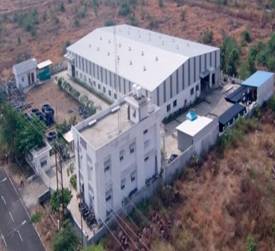
-
- Paradeep Plastic Park, Odisha: The plastic park was approved in 2013 with a total project cost of approx. Rs. 107 cr. The plastic park has almost completed 100% physical infrastructure in 2020. The authorities has allotted 7 plots in the park to the industry.
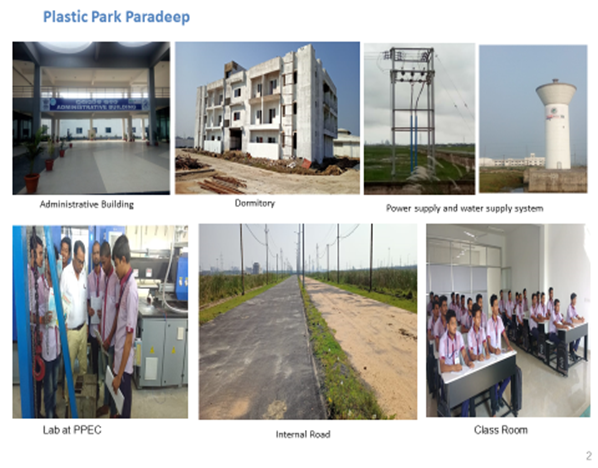
- Paradeep Plastic Park, Odisha: The plastic park was approved in 2013 with a total project cost of approx. Rs. 107 cr. The plastic park has almost completed 100% physical infrastructure in 2020. The authorities has allotted 7 plots in the park to the industry.
Petroleum, Chemical and Petrochemical Investment Regions (PCPIRs)
- At present, four Petrochemical Investment Regions (PCPIRs) policies are being implemented in the States of Andhra Pradesh (Vishakhapatnam), Gujarat (Dahej), Odisha (Paradeep) and Tamil Nadu (Cuddalore and Nagapattinam) to promote investment and industrial development in these sectors.
- Once fully established, these four PCPIRs are expected to attract investment of around Rs. 7.63 lakh crore. As per data available from State Governments, investments worth Rs. 2.12 lakh crore approximately have been made / committed in these regions. The four PCPIRs are expected to generate employment for around 33.83 lakh persons. Around 3.50 lakh persons have been employed in direct and indirect activities related to PCPIRs. PCPIRs promotes the Petroleum, Chemical and Petrochemical sectors in an integrated and environmental friendly manner on a large scale. PCPIRs are envisioned with high-class common infrastructure and support services to provide a competitive environment conducive for setting up businesses.
 Indian Industry Plus A Pratisrutiplus Suppliment
Indian Industry Plus A Pratisrutiplus Suppliment






